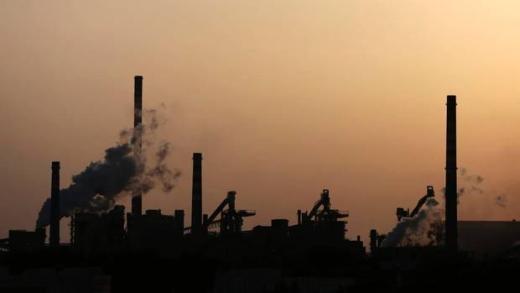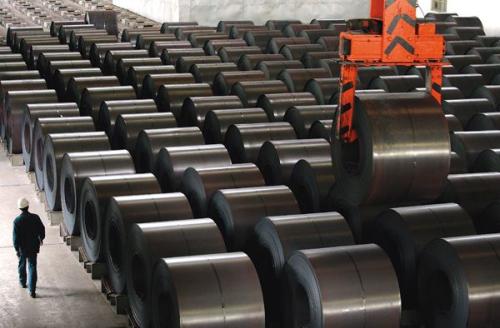Photographs: Reuters Krishna Kant in Mumbai
Declining GDP growth, persistently high consumer inflation, poor public finances and worsening macro-economic indicators. In such a scenario, should Indian companies chase growth or consolidate their market position?
Many analysts and businessmen have now begun to ask this question. "We have just completed a big capex cycle and don't require further capacity for the next three to four years. Now it is time to consolidate our market position and build a lead over the competition," says Anil Gupta, joint managing director of Havells India, a leading manufacturer of household electrical equipment.
According to him, the macro-economic headwinds provide financially stronger companies an opportunity to build a lead over their weaker peers.
"Our focus has now shifted to market development, brand-building and deepening our sales and distribution network, so that we gain the most when economic growth picks up a few quarters from now," he adds.
In the past five years, Havells has spent Rs 702 crore (Rs 7.02 billion) on building new factories and expanding capacity of its old units. The amount is around 70 per cent of all its capex till date.
Experts agree. "Growth is good, but this should not be our primary concern right now. Let companies strengthen their balance sheets, improve capacity utilisation and weed out inefficiencies from their system. Similarly, banks need time to stabilise their NPAs (non-performing assets) before project lending could resume," says Deep Narayan Mukherjee, director (corporate ratings), India Ratings & Research.
...
Why India Inc is not chasing growth any more
Image: A significant portion of earlier capex by India Inc is under-utilisedPhotographs: Reuters
According to him, the economy is in a bottoming-out phase and this process of consolidation, if allowed to play out fully, will kick-start the next cycle of growth.
Others says that the new growth cycle will be led by better utilisation of existing capacity rather than fresh capex.
"A lot of industrial capacity has been created in the past five to six years and a significant portion of that is under-utilised. If companies start improving their capacity utilisation, this will start a virtuous cycle in corporate earnings and a new growth cycle will emerge," says Revati Kasture, head of research at Care Ratings.
This is very important as Indian companies face "balance sheet stress" due to a mismatch between capex and actual production of goods and service, which has worsened their financial ratios.
According to analysts, this hints at a U-shaped recovery rather than the V-shaped spike in economic growth witnessed in the aftermath of the global financial crisis in 2008.
"Indian earnings downgrades bottomed in October 2011. However, we still see more downgrades than upgrades. We expect the revisions and earning upgrades to be more U-shaped than V-shaped," says Aditya Narain, analyst at Citi Group Global Markets in his recent report on India equity strategy. According to him, greater corporate focus on returns than growth should support earnings in India.
...
Why India Inc is not chasing growth any more
Photographs: Tony Gentile/Reuters
The trend is also visible in the earning trajectory of India's top-listed companies. The real deceleration in revenue growth for India's top 100 companies (excluding oil & gas, banks and finance) occurred sometime in March 2012 quarter and is likely to hit the bottom in the next two to three quarters.
It will remain there for some time and then recover gradually. Profit growth during the period has been highly volatile due to fluctuations in foreign exchange rates, commodity prices and the inflationary environment in India.
"Overall, inflation has remained elevated and persistent pressure on nominal sales growth suggests that real economic growth has not bottomed out yet," say Nomura analysts led by Prabhat Awasthi.
According to him, net earnings revisions remained negative during the September quarter earnings season, although the extent of downward revisions was less than in the preceding quarter.
Financially well-placed companies see an opportunity in this and are investing ahead of demand, to make higher returns and gain market share once growth returns.
"You can't wish away 1.2 billion people in India. Most of them still want to build homes, asking for more roads, rail, airports and other physical infrastructure. Growth is only a matter of time. Our balance sheet allows us to take some risks, so we are going ahead with a new unit in Bihar," says Ashok Bhandari, chief financial officer of Shree Cement.





article